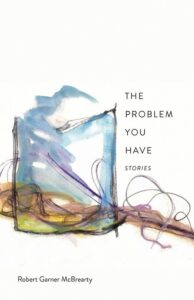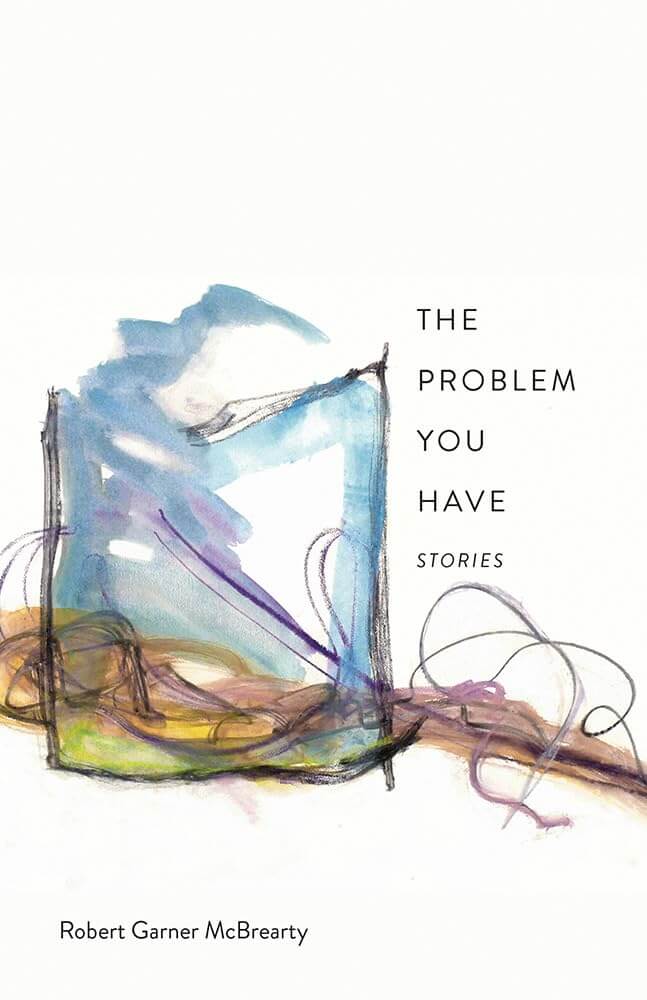Cognitive dissonance
Short stories explore characters’ irrevocable loss with depth, complexity
Short stories explore characters’ irrevocable loss with depth, complexity

Robert Garner McBrearty
Are they transported by his lecture? Or bored out of their ever-lovin’ minds? Sometimes it’s hard to read the room. Jim Robertson, a jaded literature professor lecturing his students about “The Love Song of J. Alfred Prufrock,” can’t tell if his students love him or hate him. Robertson has never taken LSD before; the hit he foolishly took before class pushes him far out into the ocean swells, far from the breakwater of safety. It’s quite a ride.
“The professor did not know then if he was forming words or babbling in tongues; chuckling came at him like a wave from the back of the room, and the professor wiped his wet face, his heart rattling around like a rat in the cage of his chest,” writes Robert Garner McBrearty in “The Professor’s March,” one of 15 crackling new short stories in his collection, The Problem You Have.
The book’s expansive title explores the stark, irrevocable losses people experience, from a cognitively impaired man off his meds who believes his house is haunted by the souls of Comanche Indians, to a dying man recalling with regret a friend left on the battlefield. These plots sound like downers, yet McBrearty’s gutsy, potent stories smoke with surprising turns and merciful insights.
In “The Next Town Over,” we meet Samuel at a particularly bad moment. He suffers from a form of dementia (Alzheimer’s?) and when his wife calls him with the disturbing news that she’s run her car off the road in a blizzard, he reacts with heroic foolishness, promising to rescue her. He wants to save her but, of course, he can’t. He doesn’t have the cognitive bandwidth or the magical ability to see through blowing snow. As the story unfolds, “The Next Town Over” becomes a metaphor every unknown thing we dread and realize we will encounter.
As a newcomer to McBrearty’s writing, I wasn’t expecting the one-two punch his stories delivered. Nor was I expecting the depth or complexity of his characters’ dilemmas. His stories seem to point to the idea that even if we’ve made a mess of our lives, all is not lost, though we must come to terms with our shortcomings and weaknesses. It’s no surprise that McBrearty is a recipient of several prestigious writing awards. He has received a Pushcart Prize, a Sherwood Anderson Foundation Fiction Award, and fellowships to MacDowell and the Fine Arts Work Center in Provincetown, Mass. He’s the author of five works of fiction, including the short story collections A Night at the Y, Let the Birds Drink in Peace, When I can’t Sleep, and the novella The Western Lonesome Society.
of his characters’ dilemmas. His stories seem to point to the idea that even if we’ve made a mess of our lives, all is not lost, though we must come to terms with our shortcomings and weaknesses. It’s no surprise that McBrearty is a recipient of several prestigious writing awards. He has received a Pushcart Prize, a Sherwood Anderson Foundation Fiction Award, and fellowships to MacDowell and the Fine Arts Work Center in Provincetown, Mass. He’s the author of five works of fiction, including the short story collections A Night at the Y, Let the Birds Drink in Peace, When I can’t Sleep, and the novella The Western Lonesome Society.
For the uninitiated, the short story “Come See Us” from The Problem You Have is a great place to become acquainted with McBrearty’s themes and style. A young couple, Jenny and Tim, are invited to dinner with Al and Margie, who run a locksmith company. Their hosts, acquaintances, initially just seem overly friendly, but as the night unfolds (and the liquor flows), things veer out of control. Margie, in a low-cut, revealing blouse, seems to be hitting on Tim. And Al, waving around a pistol, starts railing about the bad things happening in the world. Better, he says, to live in safe isolation. McBrearty writes:
“People want security, we give them security, but the real joy is when people want in,” Al tells the couple.“That’s when the juices flow. They’re locked out, out of their houses, out of their car. They beat on the windows, like babies and we say, easy now, easy, we’re going to find a way back in.” His voice trailed off. “But sometimes you’ve got to keep them in.”
As the weirdness ramps up—porn after dinner?—Jenny and Tim beat a hasty retreat. On the way home, safe in their car, they vow smugly that they will never turn into those people. Although the story ends with Jenny and Tim trying to reassure themselves, it’s clear in McBrearty there’s no such thing as the last word. Jenny and Tim may not recognize who they turn into in the future. The Problems You Have is proof that life is juicy and full of surprises.
D’Arcy Fallon, an award-winning former Colorado Springs Gazette reporter, lives in Springfield, Ohio. A professor emerita of Wittenberg University, she is the author of a memoir, So Late, So Soon (Hawthorne Books), about living in a religious commune in the ‘70s. Her work appears at https://darcyfallon.substack.com.
Click here for more from D'Arcy Fallon.

